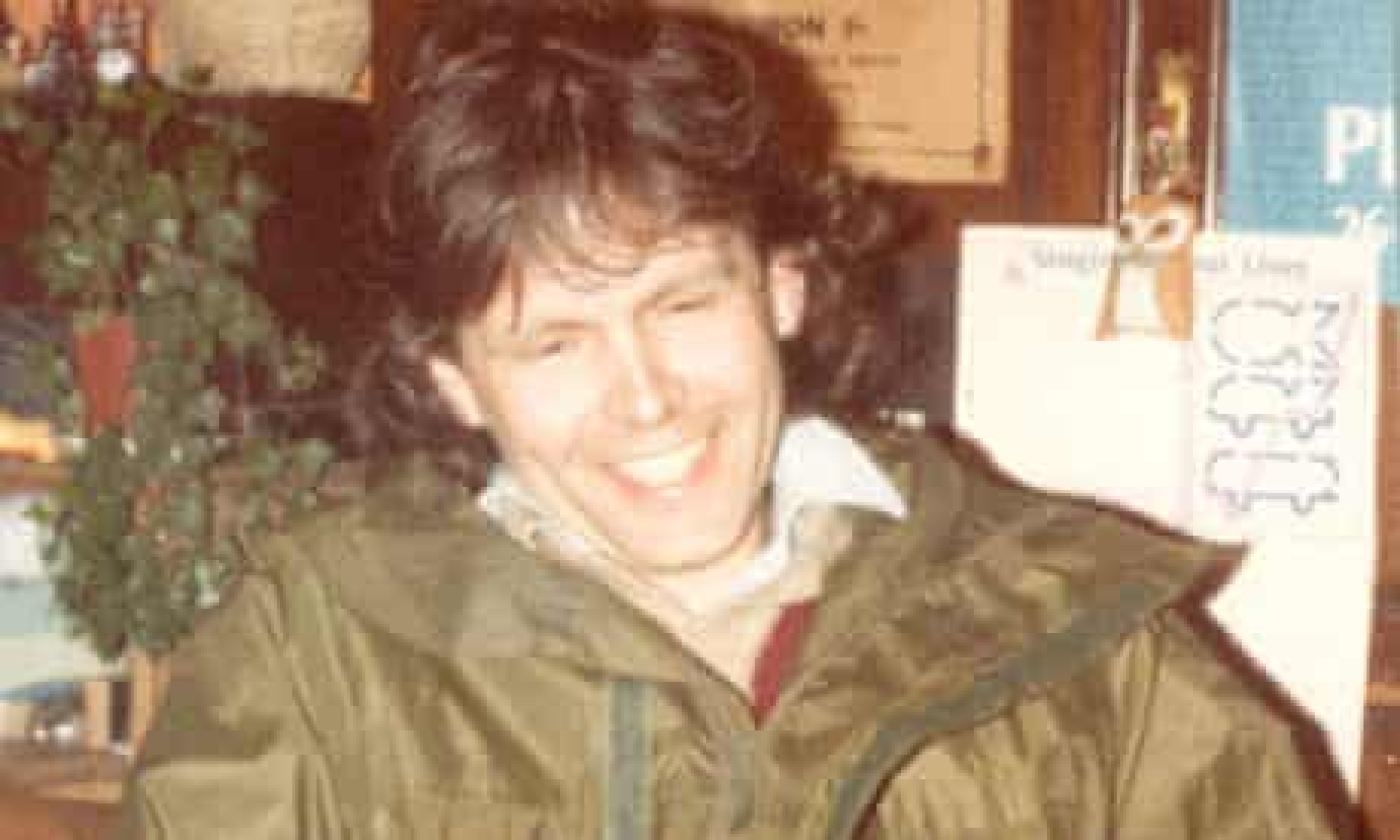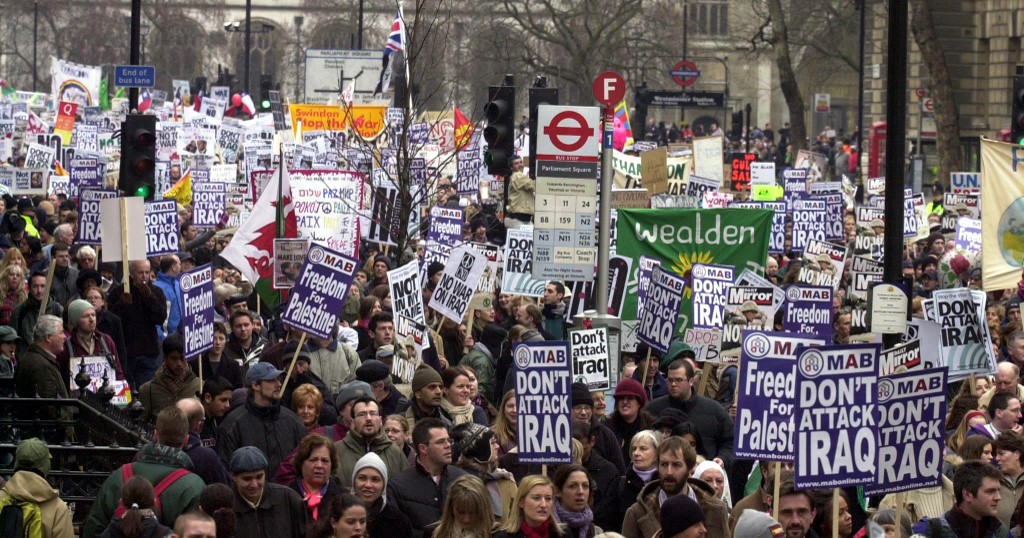An honorary Muslim’: The police spy who monitored London's mosques in plain sight Ian Cobain
One morning shortly after 9/11, with the remains of the Twin Towers still smouldering, thousands dead and missing and the world slowly accepting that many old certainties had vanished, two police officers met in a cafe across the road from London’s police headquarters at New Scotland Yard.
Both men were detectives with Special Branch - as the intelligence-gathering sections of British police forces are known - and both are said to have had long experience of counter-terrorism operations.
The al-Qaeda attacks had entirely dwarfed any plots that these men had encountered, however, and they must have realised that some of their previous investigations were looking somewhat trivial.
As they drank their coffees, the two men began to discuss plans to map London’s Muslim communities and organisations in a way that would enable them to gather intelligence about al-Qaeda’s influence within the city, and the risks that it posed.
At this time, Scotland Yard’s Special Branch was facing its own threat. Having already lost the lead role in tackling Irish republican militancy to the UK’s domestic security service, MI5, it was facing what amounted to a hostile takeover by the Yard’s Anti-Terrorist Branch, a unit which it had regarded as a rival for decades.
In the new, post-9/11 world of policing, Special Branch needed to find a role for itself.
The two men in the cafe had between them many years of undercover experience, having infiltrated and spied upon many of the organisations they were investigating.
But they were aware that this was going to be all but impossible when it came to gathering information and spreading influence among London’s Muslim population.
One of the men, a detective inspector called Bob Lambert, suggested that they should operate in a way which would appear to be a more overt policing operation, drawing upon his experience of watching older Special Branch officers making contact with London’s Sikh communities following the 1985 bombing of an Air India flight over the Atlantic.
They decided they would set up an organisation that would come to be called the Muslim Contact Unit (MCU), and work collaboratively with leading Muslims, Islamic organisations and mosques, forming trust-based relationships in an attempt to counter the influence of al-Qaeda.
A calm man, a good listener and quick learner, Lambert would in time win the admiration of many of the Muslims he met - “he was regarded as an honorary Muslim,” recalls one - as well as the respect of senior security officials at the British government's Home Office.
Following his retirement in 2007, Lambert embarked on an academic career in the growing field of security studies and was rewarded with an official honour for “services to policing”.
But as they talked and drank their coffees, neither man could have predicted that the earlier undercover work of Lambert and other members of the MCU would eventually be exposed to public gaze; nor that this unmasking would cause widespread revulsion at the way in which they had performed their duties, trigger a seemingly endless series of compensation claims against Scotland Yard and result in government ministers ordering a public inquiry.
Moreover, once Lambert had been unmasked, a number of the Muslims who had cooperated with him would ask themselves whether his Muslim Contact Unit was all that it appeared to be.
‘The Hairies’
Much of Lambert’s professional life had been shaped by his undercover work. It began in 1983, when he joined a Special Branch unit that had originally been formed 15 years earlier, after anti-Vietnam War protests outside the US embassy in London turned unexpectedly violent.
Set up with the help of MI5, and officially known as the Special Demonstration Squad, the unit’s members had an unofficial nickname among those in the know at the Yard. As many of the male officers who joined it would grow long hair and often beards, they were known as “the Hairies”.
The rationale of the SDS was said to have been to provide intelligence on planned demonstrations that would help to prevent violent disorder. By the time Lambert joined the SDS, its officers had infiltrated a wide number of political groups, many of them focused on environmental issues and animal welfare.
Calling himself “Bob Robinson”, and claiming to be a vegan who worked as a gardener, Lambert soon became a regular figure at animal rights demonstrations.
With his long curls and boyish grin, he was a popular figure who regularly hosted parties at his flat in north London. He was useful too - he owned a van, and would ferry fellow activists to protests. He spoke at meetings and helped to compose pamphlets.
Soon he was at the heart of two organisations: a small anti-capitalist group called London Greenpeace, which had no relation to the larger campaign group with the same name, and another called the Animal Liberation Front.
“One day Bob wasn’t there,” recalls someone who thought of "Bob Robinson" as a friend and fellow activist. “And then Bob was there. He was everywhere.”
He was passionate, he was articulate, he was committed: nobody doubted Bob for a moment.
After four years - which is now known to have been the usual period of deployment for undercover SDS detectives - Bob announced to his London Greenpeace and ALF friends that he needed to lie low for a while: he believed the police were taking too close an interest in his activities.
A few people received postcards from Bob, posted in Spain, but none saw him again, for more than 20 years.
‘The Muslim desk’
No longer undercover, Lambert came back into the Yard, working with a Special Branch unit known as E Squad, which monitored suspected militant sympathisers in London. He is thought to have been stationed within a sub-unit then known informally at Special Branch as the Muslim desk.
He soon found himself back at the SDS, however, with the title of Controller of Operations, giving him responsibility for its day-to-day management.
Lambert appears to have been given enormous freedom. He took it upon himself to expand the work of the SDS across Britain, and decided that a change of name was in order to reflect the unit’s expanded role. SDS was said to now stand for the Special Duties Section.
He appears to have left his managerial role at the SDS behind some time before 9/11.
After that meeting at the cafe across the road from Scotland Yard, Lambert secured a small amount of funding, discreet office space on the second floor of a disused police building near London’s King’s Cross station, and the secondment of a small number of officers, at least a few of them from the Muslim desk.
The Muslim Contact Unit never had more than a dozen detectives, according to Home Office sources. Initially, none were Muslim, although a few Muslim detectives were later seconded to the unit.
Lambert would later claim that the cafe meeting was prompted not by 9/11, but by the launch of US air strikes against Taliban targets in Afghanistan the following month. He must, however, have been giving considerable thought before those air strikes to the ways in which Special Branch could help to counter al-Qaeda.
He also said that he was anxious to avoid past errors in counter-terrorism policing. “I remain stubbornly attached to error and claim complete responsibility for my own mistakes,” he would later write.
However, he then went on to state that the errors he had in mind were those made during Northern Ireland’s Troubles. He had “learned from mistakes in countering Irish republican terrorism”; police should have targeted terrorists, not political activists, and certainly not ordinary Irish Catholic communities, which he said “bore the brunt of stereotyping, profiling and stigmatisation”.
With the MCU up and running, Lambert says he set out to approach every mosque and Muslim association in the London area.
He also befriended a number of leading members of the Stop the War Coalition, a loose alliance of leftists, pacifists and Muslims that had formed in the weeks after 9/11. He was regularly to be seen on the Coalition’s marches, including one in February 2003, ahead of the US-led invasion of Iraq, that was the biggest protest ever held in the UK.
Many who met him at that time were quietly impressed. “I came to know Bob through the demonstrations that we held as the Muslim Association of Britain from 2002-3, and then the demonstrations regarding Palestine,” recalls Anas Altikriti, former president of the Muslim Association of Britain and the founder of the Cordoba Foundation, which aims to strengthen understanding between the Muslim world and the West.
“Up until 2005, he used to attend all of those demonstrations. I gathered he was there to check that things were going smoothly and to get to know a few people, and that didn’t surprise me.
“I found him to be a pleasant person, I found him to be courteous. I found him to be approachable. I found him to be someone who was keen to listen.”
“He was a really polite, gentle person,” says Azzam Tamimi, the British-Palestinian academic. Daud Abdullah of the Muslim Council of Britain recalls: “He could put you at ease, you felt easy in his company.”
It was not only Lambert’s demeanour that impressed - so too did his apparent willingness to engage with Muslims on the basis of their perspectives: he did not attempt to sell the positions of the British government or Scotland Yard to the people with whom he met and talked. And that gave some of them hope that he would, in turn, reflect those Muslim perspectives back to the Home Office.
Lambert later wrote that after his initial conversations he decided to attempt to remodel traditional community police methods in order to develop an innovative strand of counter-terrorism work.
“As head of the MCU… I helped form partnerships that empowered representatives of mosques and Muslim organisations against the influence of al-Qaeda propagandists, strategists and apologists in local communities in London.”
That is not quite how everyone at the Home Office would describe the work. “They recruited moderate extremists to counter the extremist extremists,” one senior official says bluntly.





No comments:
Post a Comment
Note: only a member of this blog may post a comment.